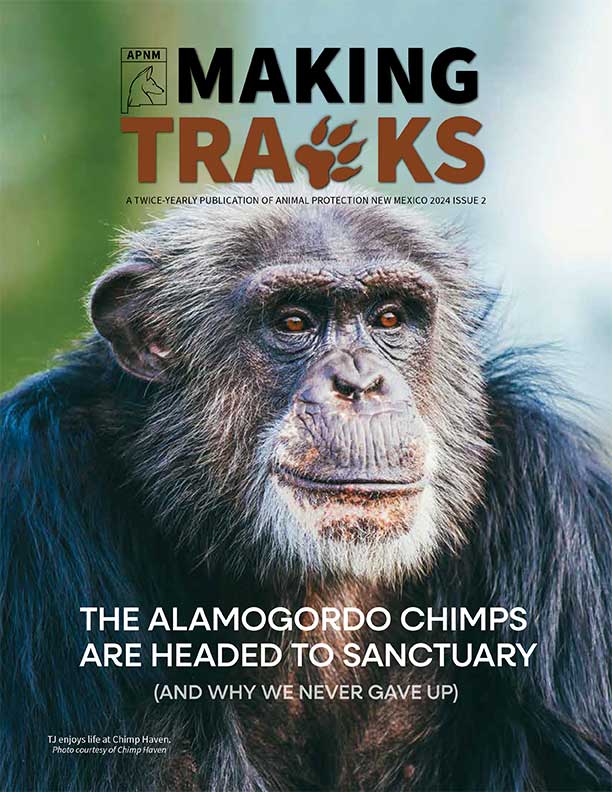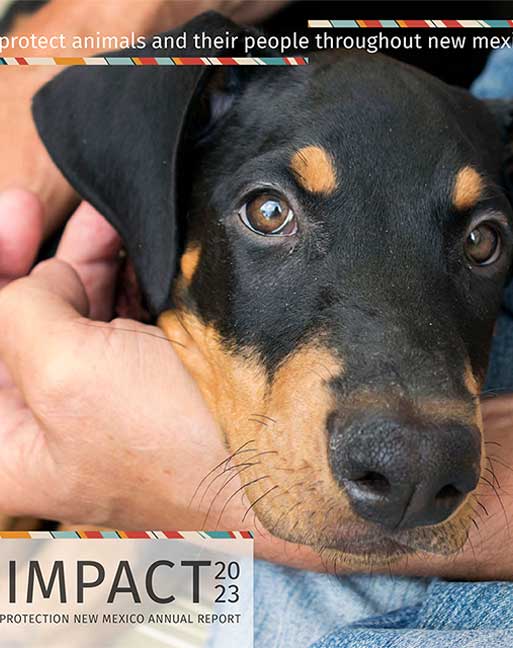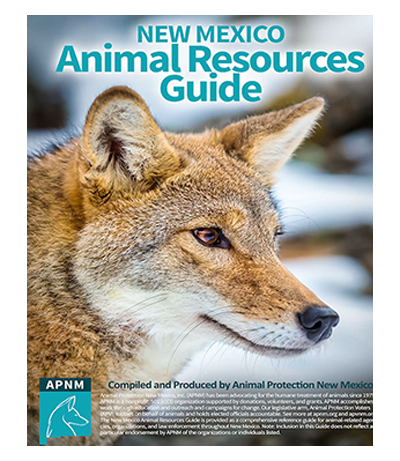Our country’s founding fathers designed a system for passing laws that is intentionally cumbersome, so as to protect citizens from having to live with an excessive number of laws, as well as laws which might be arbitrary. Likewise, New Mexico’s legislative system was purposely designed to create many hurdles for bills intended to become laws. For that reason, the process of passing a state law may seem unnecessarily burdensome. Remember, it is meant to be so.
The Legislature
When: In odd years (ex. 2011), New Mexico’s legislature meets for 60 days (from the third week of January through the third week of March). This is called the “long session.”
In even years (ex. 2012), New Mexico’s legislature meets for 30 days (from the third week of January through the third week of February). This “short session” is constitutionally restricted to:
- fiscal matters;
- special messages from the Governor;
- bills passed in the previous legislature but vetoed by the Governor.
(In general, animal-related bills are not easily introduced in short sessions, so animal advocates are generally restricted to getting proactive bills passed only every two years. Nevertheless, assorted bills affecting animals are invariably introduced in both short and long sessions, so it is wise for animal advocates to monitor bills during every legislative session.)
Who: New Mexico has a “citizen” legislature made up of 112 persons (42 State Senators and 70 State Representatives). State Senators serve four-year terms. State Representatives serve two-year terms (they are elected prior to every long session, making advance lobbying a constant challenge). The Senate and House of Representatives are called “chambers.” For a listing of New Mexico’s legislators and more information, go to www.nmlegis.gov.
How a Bill Progresses Through the Process
- A bill is written, introduced and assigned a bill number in one chamber (either the House or the Senate). Each bill must have at least a “sponsor,” which is a legislator who wants to try to push the bill through the process. Most bills also have several co-sponsors, which are other legislators who also want to see the legislation given a chance in the system.
- The bill is assigned to several committees in the chamber (usually two to three committees).
- The bill is “heard” in each committee, sometimes with “expert witnesses” testifying for and against the bill. The public is encouraged to give their opinions at this stage by attending hearings and speaking about the bill. After hearing public testimony, legislators will discuss the bill in the committee, and then vote to give it a “Do Pass”, “Do Not Pass”, “No Recommendation” or “Table” recommendation. A bill can only proceed to the next committee to which it was assigned if it is given a “Do Pass” or “No Recommendation”. If it is given a “Do Not Pass” in its first committee, it is “dead”.
- If a bill proceeds through all its assigned committees, it goes to the full floor (all the members) of the chamber, to be heard and discussed among all the members of that chamber. Public testimony is not allowed at this point, although experts will sometimes be invited to be guests on the floor to answer questions on complicated bills. If the bill is voted down on the floor, it can go no further. If it is approved by a majority vote on the full floor, it proceeds onto the next chamber.
- Once at the next chamber, it goes through the same process: consideration by several committees and a final floor vote.
- If the bill makes it through all the committees and the floor votes of both chambers, it goes to the Governor for signature. The Governor may veto or sign the bill. If the Governor signs the bill, it becomes state law.
For more detailed information, please refer to the New Mexico Blue Book, a valuable reference available free of charge from the New Mexico Secretary of State’s office at (505) 827-3600.








